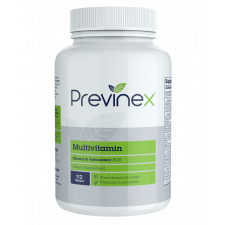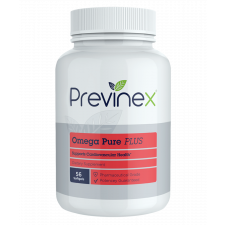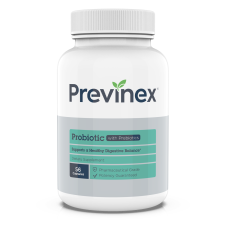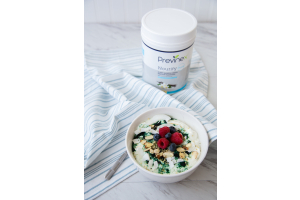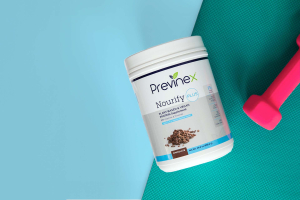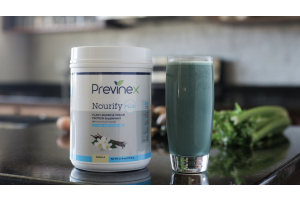
Whether you are an everyday vitamin consumer or only rely on vitamin C during the cold and flu season, there are things you should know about your vitamins. Recent research has shown that all vitamins are not created equally. Vitamins and other dietary supplements do not need to adhere to the same rigorous testing as medications. While the FDA will react when complaints are made, they do not test vitamins before they go to market. This unregulated atmosphere has created a lot of vitamin myths.
With so many unknowns it is up to the consumer to understand what is in their vitamin bottles. Here we will dispel some popular myths to give you a better idea of what is in your bottle so you can make more informed decisions when it comes to something as important as your health.
Myth #1: All Vitamins Are Safe
Vitamins are designed to be a way to boost your health and to supplement what is missing from your diet. While it would be great if we could get all the vitamins, minerals, nutrients, and antioxidants through our diet - it isn’t as easy as it sounds. This leads many of us to a daily vitamin supplement. Since they are a health related item you can be sure that all vitamins are safe, right? Wrong.
The Federal Drug Administration (FDA) does not regulate vitamins, unlike over-the-counter or prescription medications. Dietary supplements are considered a separate category and are not subject to the testing and regulation of medications. This means that you must rely on the manufacturer and trust their claims to ensure the safety and quality of your multi-vitamin. Be careful to find a manufacturer that you can truly trust for your health needs.
Myth #2: All Vitamins Are Equally Effective
Vitamins are vitamins, so shouldn’t they all be equally effective? Isn't the vitamin with a higher amounts of vitamins and minerals on the label to best one? Not necessarily. Vitamins can be either naturally occurring or synthesized in a laboratory. While vitamins created in a lab aren’t necessarily bad for you, they are generally not as potent or effective as those found in nature.
In order for a multi vitamin to be effective, our body has to be able to break it down and use what it needs, and not all forms of vitamins, especially the cheaper ones, can be absorbed. So, when choosing a vitamin brand find one that sources the best possible ingredients so you can rest assured that you are getting what you need from your supplement.
Myth #3: Your Body Gets Rid of What It Doesn’t Need
Many people have the mindset that whatever extra vitamins we don’t use we excrete through urination. While this is true of some vitamins, it is dangerously untrue of others. There are two ways this thinking can be problematic. First, high levels of one vitamin or mineral may cause a drop in another. For example, someone who has a high level of the mineral iron in their system may experience a drop in their zinc level. The second way this can lead to trouble is when you essentially overdose on a vitamin or mineral. Vitamins like B6, A, E and iron can be toxic when consumed in high doses.
Be very careful to make sure that you are within the normal limits on these compounds found in most multi-vitamins. Also be sure to choose a brand you trust so you know that what is on the label matches what is in the bottle.
Myth #4: You Don’t Need to Spend More For Quality
You know the expression “you get what you pay for”? Well, this is especially true when it comes to your vitamins. Low cost vitamins often use the cheapest, least effective forms of vitamins and minerals, are often chock full of extras and fillers, as well as compounds that were made in a lab, rather than found in nature. When you opt for these cheaper options you are leaving yourself open to problems, and potentially wasting your money on a product that doesn't really provide health benefits.
When its time to choose a brand, opt for those with better ingredient sourcing, a better manufacturing process and product testing. This way you can be confident that the ingredients are the best available and that every safety measure has been taken.
Myth #5: Vitamins Don’t Expire
A lot of people think that since vitamins are stable compounds, that they do not expire. Others think that even though they may technically expire, they are probably just as good a year or two after the expiration date on the bottle. Despite the popular opinion, this is not the case.
Vitamins do expire. The expiration date printed on the bottle is a safe guideline for how long the dosage and percentages are correct. When you stray outside of this safe period you will not be getting what you need. As time goes by the quality of the vitamins and minerals inside the supplement degrade. This means you might be taking 25% of your daily-recommended nutrients. Pay attention to these days to stay on top of your health.
Myth #6: My Doctor Doesn’t Need to Know What Vitamins I Take
When you sit down with your doctor and he or she asks you what medications you are taking you can probably accurately list what you take on a daily basis. You spout off the OTC and prescription medications inside your medicine cabinet. But, are you leaving out what supplements you take each day? Maybe it doesn’t seem like information your doctor needs, but it is.
There are a number of medications that are less effective and sometimes even dangerous when taken with some dietary supplements. Your doctor needs to know everything you take on a daily basis to help you make wise health decisions.
Understanding the bigger picture when it comes to your vitamins and supplements is important. With little regulation and testing required, it is up to the consumer to make sure they get what they need from their vitamins.

